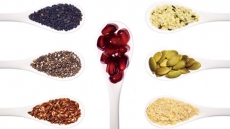GrassrootsHealth helped implement a first-of-its kind study for pregnant women. The goal was to help pregnant women achieve a vitamin D serum level of at least 40 ng/ml (100 nmol/L) -- which has been demonstrated to be the threshold for benefit in previous randomized trials. The study was published in PLOS ONE by GrassrootsHealth, the implementation leaders.
This population study included over 1,000 pregnant women at the Medical University of South Carolina. Results found that women who achieved a 25-hydroxyvitamin D serum level of greater than or equal to 40 ng/ml (100 nmol/L) had a 60% lower risk of preterm birth compared to those with levels less than 20 ng/ml (50 nmol/L), p=0.0001.
Two randomized controlled trials with vitamin D and pregnancy outcomes and an associated post-hoc analysis by researchers at the Medical University of South Carolina (MUSC) showed a 59% lower risk of preterm births with 25-hydroxyvitamin D levels of greater than or equal to 40 ng/ml (100 nmol/L) compared to women with concentrations less than 20 ng/ml (the current sufficient level recommended by the Institute of Medicine). This new population study of all pregnant women at the medical center, using the implementation services of GrassrootsHealth and their Protect our Children NOW! program, has confirmed that results can be replicated in a much larger population.
There were ethnic disparities within the results, but they were most apparent when the results singled out the women who had at least two vitamin D tests during their pregnancy, with the assumption being that the second test helps the mother zero in on how to achieve the desired vitamin D level. The overall percentage of women with two tests during the study period was 16%.
"These findings are another powerful example of the importance of the environment in our human health," said Roger B. Newman, MD, Dir. OB/Gyn, Medical University of South Carolina. "Our evolution away from sun exposure over the last hundred years has resulted in widespread Vitamin D deficiency which contributes to multiple health consequences including higher and racially disparate preterm birth rates."






